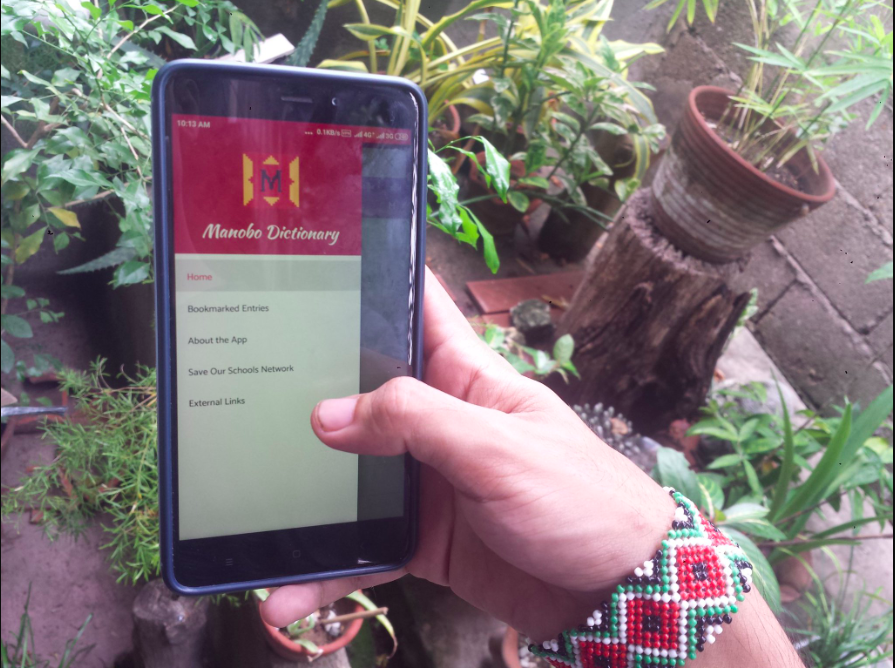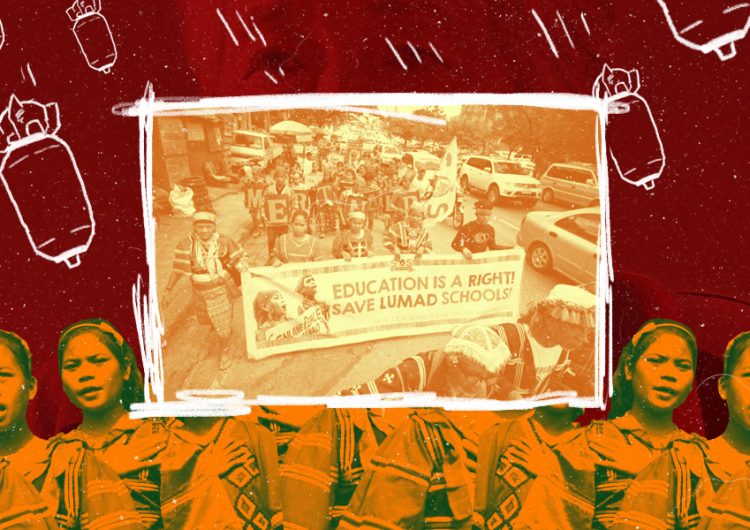Two months ago, my fellow Scout writer Giselle talked to a young Lumad named Rorelyn.
“Ang dami pang kabataan tulad namin na hindi pa nakararanas ng edukasyon. ‘Di pa nga sila nakakikita ng siyudad, ng ibang tao. Nakikita lang nila yung mga hayop sa bundok,” she said, offering an overview of how education remains inaccessible in indigenous communities.
Around the time Giselle and Rorelyn met, the Department of Education also suspended at least 55 Lumad schools. Sadly ironic, don’t you think?
Read more: The Lumad youth just want to go home, but violence won’t let them
This and other forms of discrimination pushed the child rights group Save Our Schools Network to develop a Manobo Dictionary app. The mobile software allows people to search Manobo words and their corresponding English translations. To get a better grasp at the language, users can also bookmark words they need to get back to.

Photo courtesy of Chad Booc
“In our language class, we translate words to and from English, Filipino, Bisaya and Manobo. We thought of developing the app when we Lumad school teachers noticed that a lot of our students no longer know translations of deeper words in Manobo,” says Chad Booc, a teacher at ALCADEV (Alternative Learning Center for Agriculture and Livelihood Development), a Lumad school.
“We bought the physical copy of the dictionary from SIL (Summer Institute of Linguistics) Philippines. However, it is not as handy as our mobile phones,” he notes.
Chad says one of ALCADEV’s goals is to “preserve and develop” the indigenous culture—and that, of course, includes their language. IPs or Indigenous Peoples make up at least 18 percent of the country’s population and until now, most of them do not have access to government services and their rights are still being disrespected. The Manobo Dictionary aims to empower this deprived and harassed community, if only by assisting others through an appreciation and understanding of their language.
“A lot of parents no longer teach their children the language. According to the elders we spoke with, it is due to the discrimination they faced as indigenous people. They tend to erase a part of their being so to avoid discrimination,” Chad reveals. While in the classroom setting, he also realized a lot of students do not know the translations of “deeper” Manobo words anymore.
Read more: You can volunteer in these orgs that educate kids
Factors leading to the dying state of the Manobo language include the Lumad groups’ constant displacement because of militarization, mining, logging, and other activities. “Since their language is rooted in their lands, parts of it get lost when they move to another place,” he adds.
Like other kids, the Lumad youth need to strengthen their identity. As 2019 becomes more and more exciting for utilizing technology, let’s try to give more focus on communities that need our initiatives the most. After all, we have the privilege to do so.
The Manobo Dictionary app is available on Google Play Store and can also be downloaded here.
Art by Gabriel Cruz

























Comments